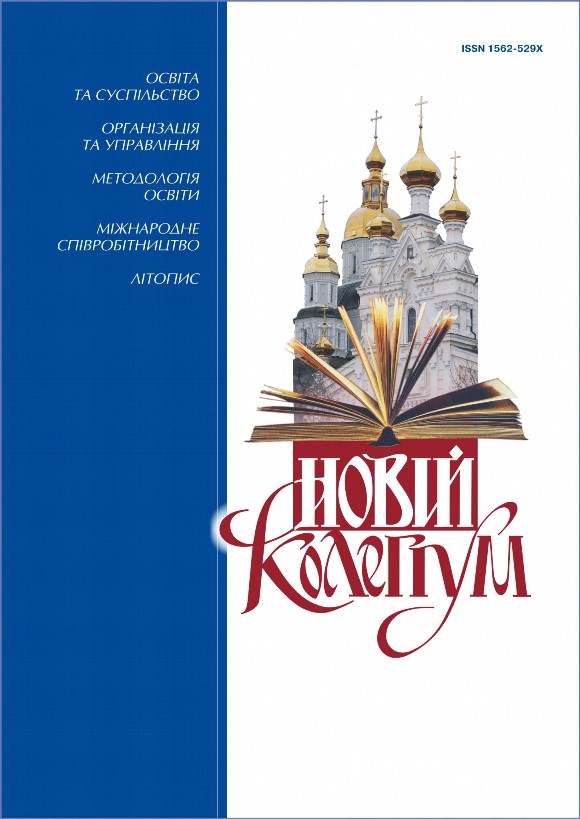The theory of solving inventive tasks and its application in institutions of higher education
DOI:
https://doi.org/10.30837/nc.2023.4.78Keywords:
invention; theory of solving inventive tasks, creation, institution of higher education, educationAbstract
The article is devoted to the actual problem of the formation of a creative approach in teaching technically oriented disciplines, and the relationship between the elements of the creative approach and the algorithmic elements of the classical approach to problem solving in the educational process of higher educational institutions. It was determined that the state of the issue in higher educational institutions is developing and constantly improving, and there is also an opportunity to direct the development of the educational process in the necessary direction. This organization of the educational process allows us to dynamically influence student learning and analyze the obtained results without harming the final result. The analysis of approaches to the organization of stimulating the development of creative endowments in invention is considered. Approaches to the formation of students' inventive skills during education are also analyzed. The relationship between the development of students' inventive skills and the formation of their creative abilities and potential has been revealed. Considered the theory of H.S. Altshuler and his substantiation of the process of achieving a solution to an inventive task in an algorithmized form, as well as the main stages of solving a problem in this theory, features of its application and key issues in its implementation. A conclusion was made about the expediency of the development of the educational process in higher educational institutions aimed at applying the theory of solving the inventive task and stimulating the development of the creative component in student education.
References
Альтшуллер Г. С., Злотин Б. Л., Зусман А. В. Поиск новых идей: от озарения к технологии (теория и практика решения изобретательских задач). Кишинёв : Картя Молдовеняскэ, 1989.
Дейл Карнегі. Як подолати неспокій і почати жити. «КМ-Букс», 2015. 272 с.
Дейл Карнегі. Як насолоджуватися життям і отримувати задоволення від роботи. «КМ-Букс», 2017. 208 с.
Декарт Р. Сочинения : в 2 т. Москва : Мысль, 1989 – 1994.
Незнаний Декарт: антропологічний вимір у філософуванні : монографія. Дніпро : Герда, 2019. 300 с.
Мазья В.Г., Шапошникова Т.О. Жак Адамар – легенда математики. Москва, 2008. 528 с.
Вайнцвайг П. Десять заповедей творческой личности ; пер. с англ. С. Л. Лойко, Ф. Б. Сарнова. Москва : Прогресс, 1990. 192 с.
Paul Weinzweig. The Dreamer Whose Dream Came True: Character, Consciousness, and the Roots of Creativity. «Kindle Edition», 2014. 212 р.
Лехновська О. Розвиток творчих здібностей студентів у процесі вивчення технологічних дисциплін у коледжі : навч.-метод. посіб. / Рівненський економіко-технологічний коледж. Рівне, 2018. 103 с.
Антонова О.Є. Сутність поняття креативності: проблеми та пошуки // Теоретичні і прикладні аспекти розвитку креативної освіти у вищій школі ; за ред. О.А. Дубасенюк. Житомир : Вид-во ЖДУ ім. І. Франка, 2012. С. 14 – 41.
Рибалка В.Р. Психологія розвитку творчої особистості : навч. посіб. Київ : І3МН, 1996. 236 с.

